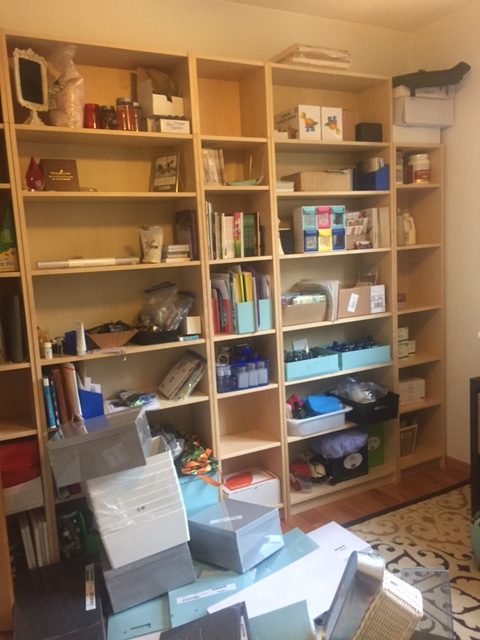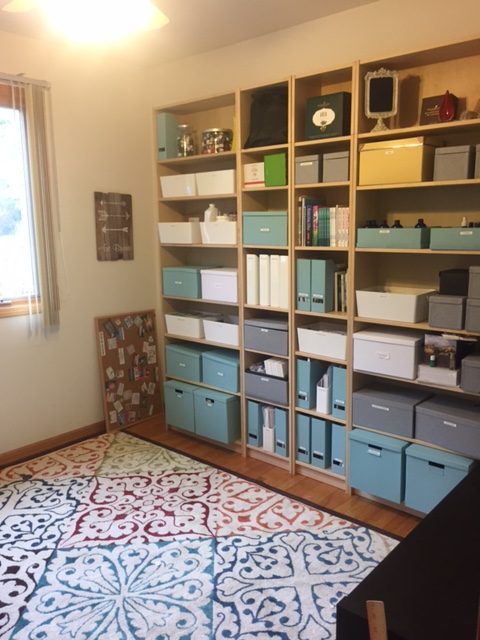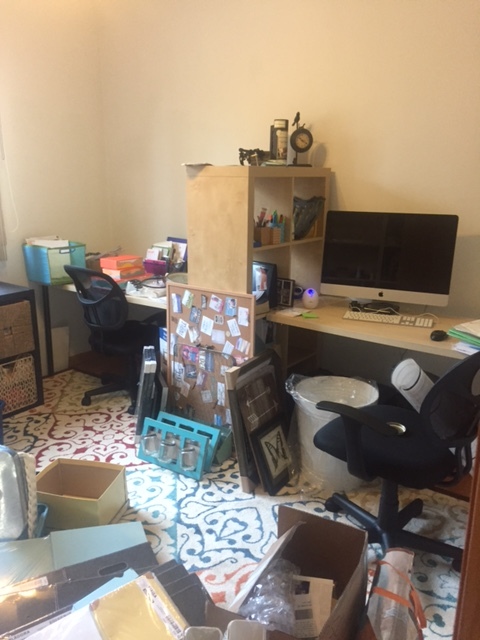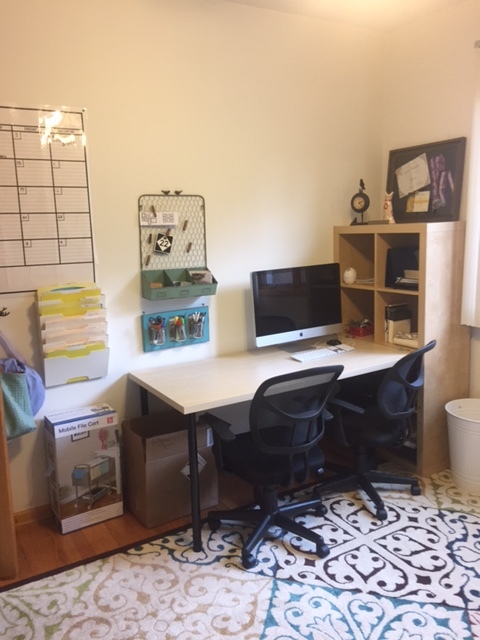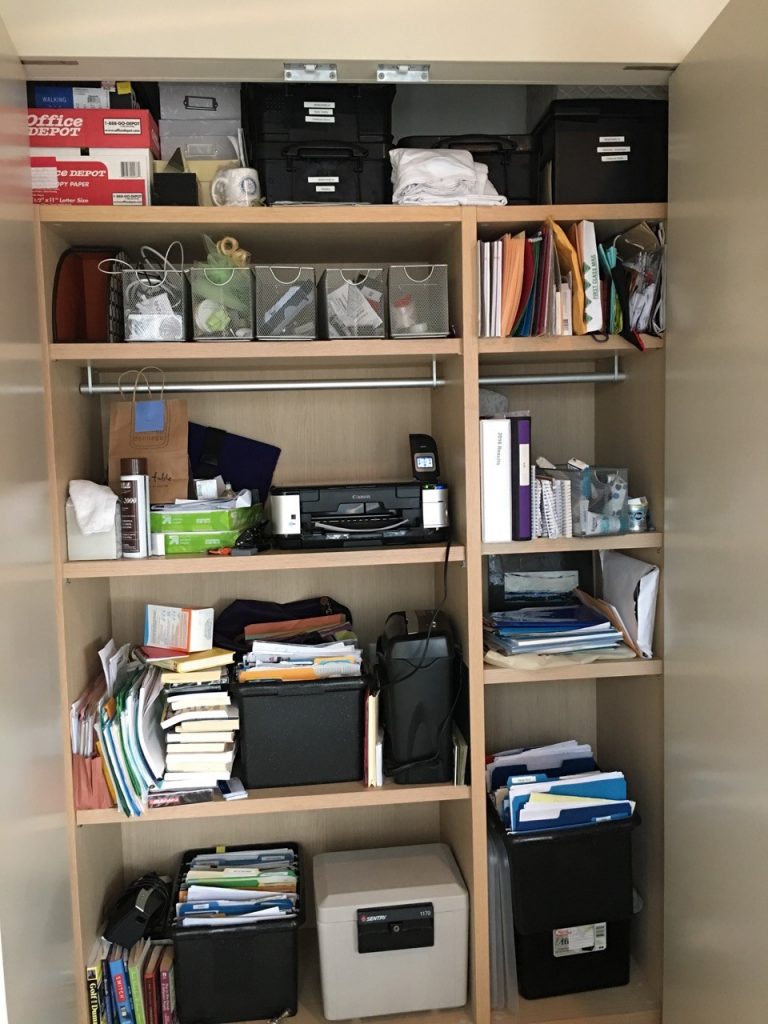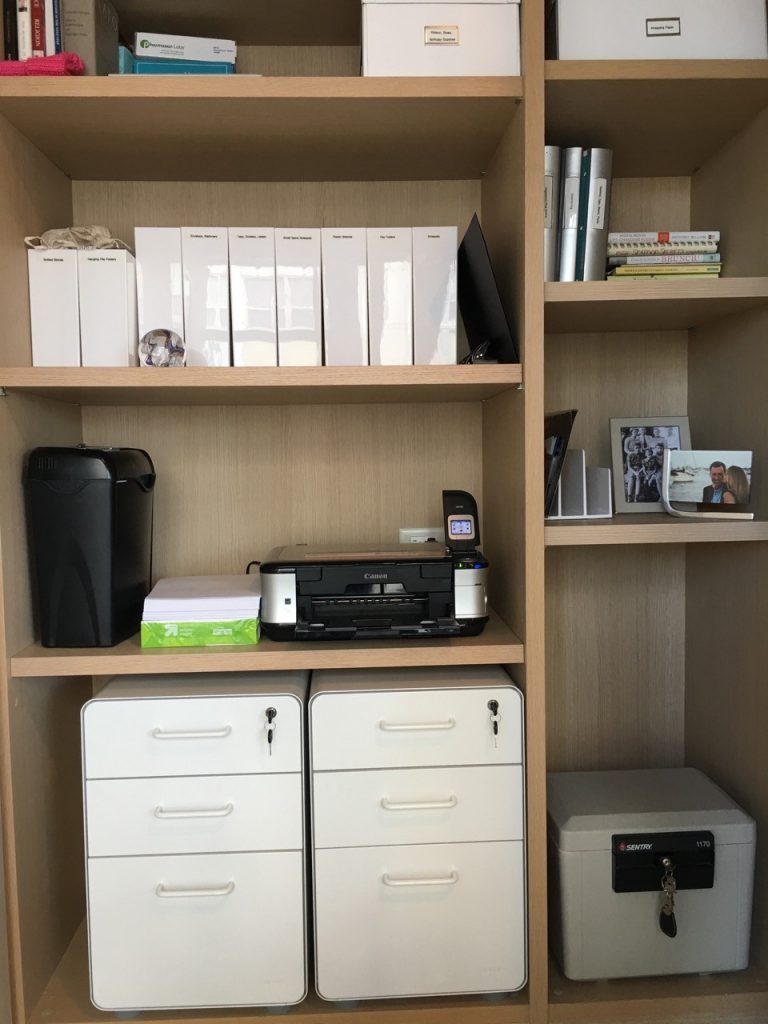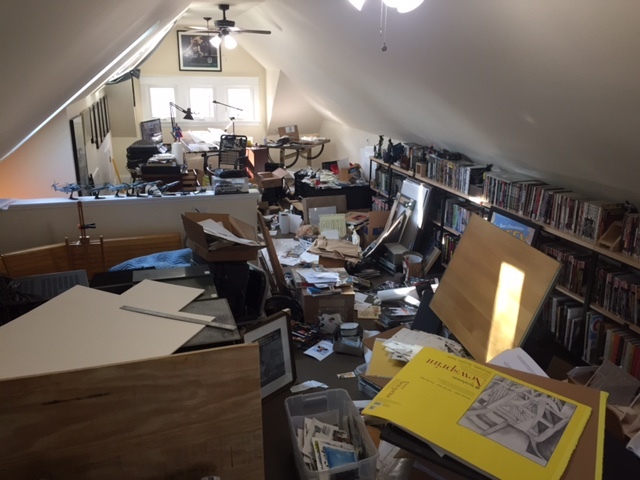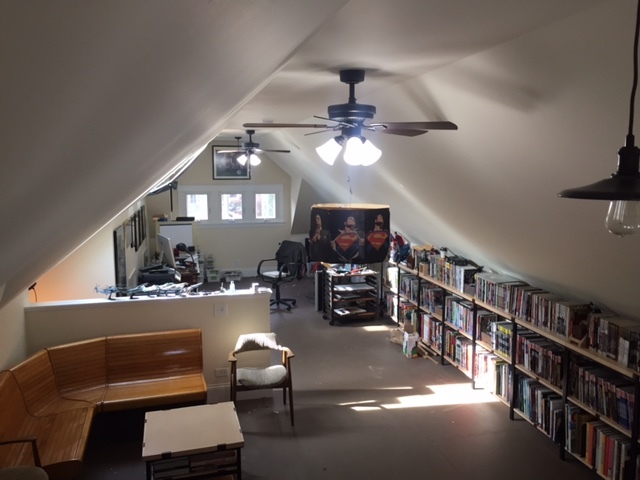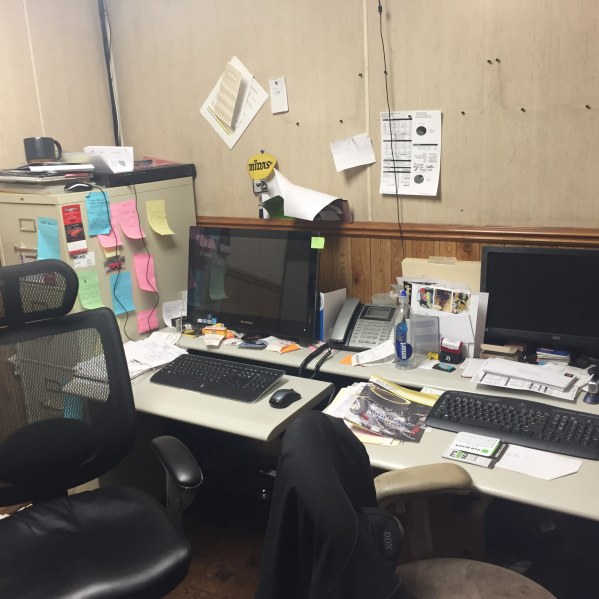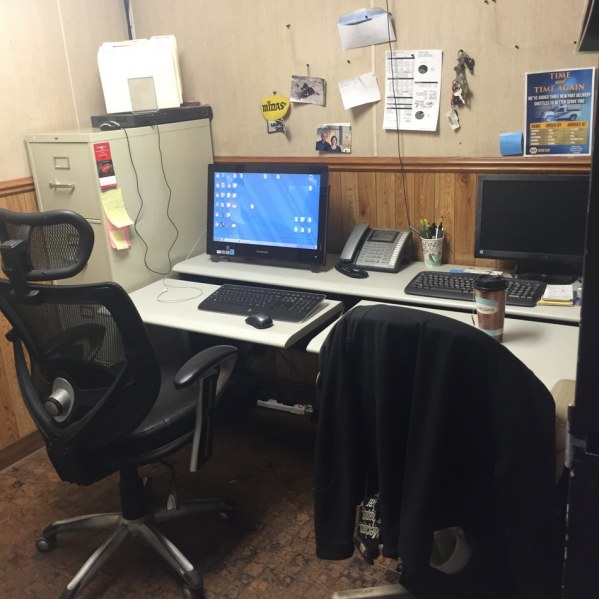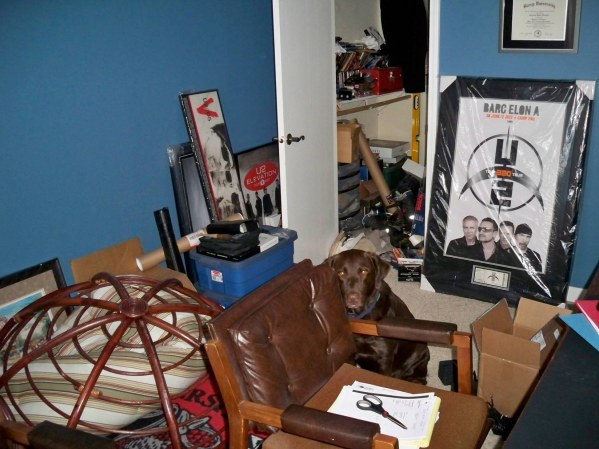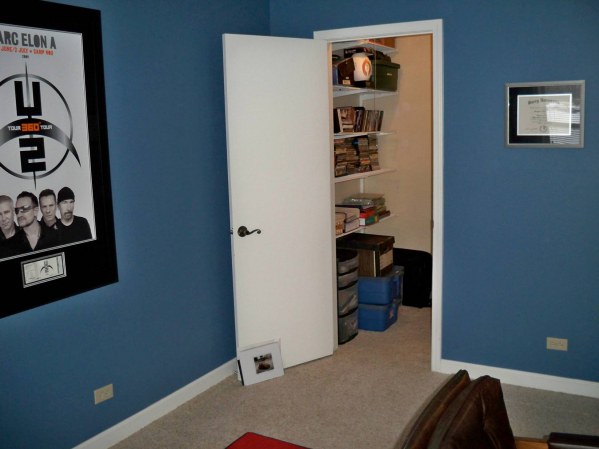Home Offices
There are several layers or parts to an office to tackle. Some need help with all area; others just need help in specific areas. Whether you need an hour of time to catch up and organize your office or a week of time, consider thinking through these different areas of your office. As an organizer, I look at the different aspects to see where you’re exceling and where you’re falling behind. After assessing all layers we dig in and organize what would benefit you the most and give you the greatest impact. So take a look at these following areas:
Furniture and layout: As our society goes more towards wireless and paperless technology, home offices are changing and taking on new forms. The tech world and electronic makers are helping us simplify, downsize and making it possible to work anywhere. Gone are the days that we need a desk, credenza, huge filing cabinets and lots of cords. If you haven’t revamped your home office to fit this new wave of simplification, consider taking that leap now. A simple desk or wall mounted desk might be all you need. If you’re needing storage space for supplies, inventory or files declutter these three categories first and only plan on storing what is absolute necessary. Streamlining what you use and need will determine what type of furniture would be most helpful to you.
Surfaces on your desk, credenza, or coffee table: Surfaces quickly accumulate paper and random things that come out of purses, pockets or full arms when you’re carrying too much and need to dump somewhere. Get rid of anything that doesn’t belong in the office that has landed on a surface. Put away all supplies and non-essential items. File away reference or archive paperwork (which I’ll explain in a little bit). Only keep action paperwork out on your desk, organized by action. Anything that you need to accomplish, complete or do should be left out. The rest should be pitched or filed away. Organize the active paperwork into deadlines, projects versus tasks, or level of importance. Not every paper is red hot. Learn to triage your paperwork.
Drawers: Most people like to skip cleaning out drawers. Drawers are great space that is typically cluttered and jammed full with no purpose. Give each drawer purpose and be intentional about what drawers should hold. Don’t waste the space with insignificant items. Skip storing a lot of office supplies but instead, hold onto a few back up supplies. Allow yourself to run out of staples, envelopes or post its before buying another pack.
The Room’s Closet: If the room that holds your home office has a closet, do you need it to function as an extension of your office? Is it filled with personal things non-related to getting work done or is it full of inventory? Supplies? Files? If you need the space for your office outfit it with sturdy shelving and resist the urge to stack. Label bins and cartons of stuff. The goal would be anytime you reach into the closet, you should be able to grab what you need fast, even under a minute.
Filing Cabinet or Filing Drawers: Here’s the biggest known secret: Keep very little paper. It’s true. You don’t need four or five drawers of paper. Most families can get away with just one drawer full of files. The only paper that should be kept is one of two types….Any paper that proves your personal or business income or deductions for taxes OR any permanent records that can’t be found digitally like passports, marriage licenses, etc.
Shelving: Office shelving is only good for books and supplies that are contained. Otherwise, shelves just collect dust and knickknacks that we like to stash on them. Be intentional to display awards and purposeful to which books are priceless to you. Keep books that inspire you and have helped change you for the better. Be inspired when you look at bookshelves instead of ridden with guilt that you haven’t read any or aren’t using any books.
Technology: Assess your cords and electronic devices. Which devices do you use on a consistent basis and which ones could you live without? How could you save space by utilizing technology or by buying devices that do several tasks, not just one? If any need to be recycled, don’t leave old computers, laptops, and printers lying around. Drop them off to your local recycling station by searching your city or suburb’s website.

